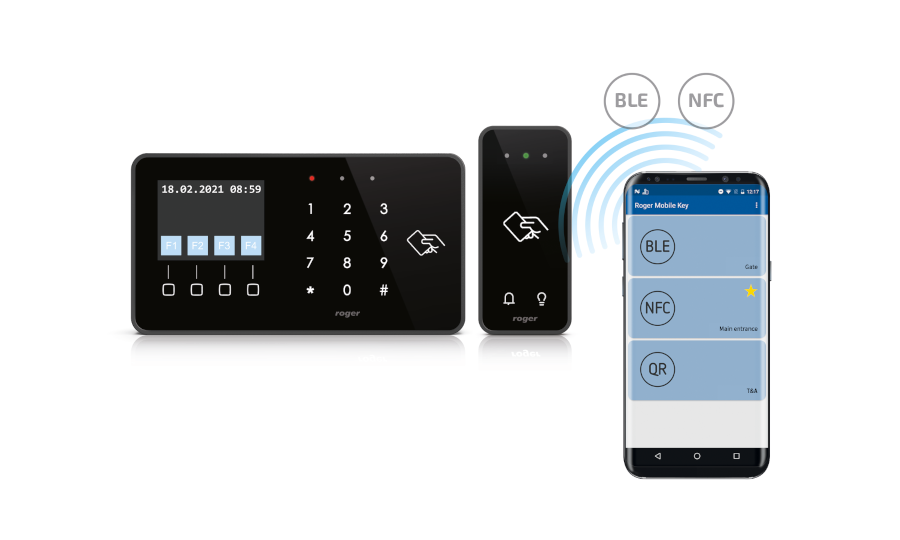Mobile Identification
In addition to standard identification methods, such as proximity card and PIN code, the RACS 5 system offers identification of users via mobile devices (smartphone, tablet) where the identifier code can be transmitted to the terminal via NFC proximity technology, BLE radio transmission (Bluetooth) or via a QR bar code displayed on the screen of the mobile device.

About solution
In addition to standard identification methods, such as proximity card and PIN code, the RACS 5 system offers identification of users via mobile devices (smartphone, tablet) where the identifier code can be transmitted to the terminal via NFC proximity technology, BLE radio transmission (Bluetooth) or via a QR bar code displayed on the screen of the mobile device.
In case of NFC and QR identification, the reading distance is in range of a few centimetres from terminal while in case of BLE identification, the mobile device may be located a few meters from the terminal, which enables the use of this form of identification for handling distant entrances and gates. The mobile identifier code is stored in the mobile device in the form of REK (Roger Electronic Key). The REK is an encrypted file containing the user identifier as well as additional information specifying the terms of use of the key. Such a key can be created locally from the RMK mobile application (Roger Mobile Key) or received from the RACS 5 system administrator by e-mail.
In general case, the user may have multiple REK keys and use them, depending on the needs, to identify at various doors or T&A registration points. Mobile identification can supplement traditional methods (card/PIN) or replace them.
The RMK application is available in the Android and iOS versions. Currently, mobile login is available at MCT88M-IO and MCT80M-BLE terminals (NFC, BLE).




